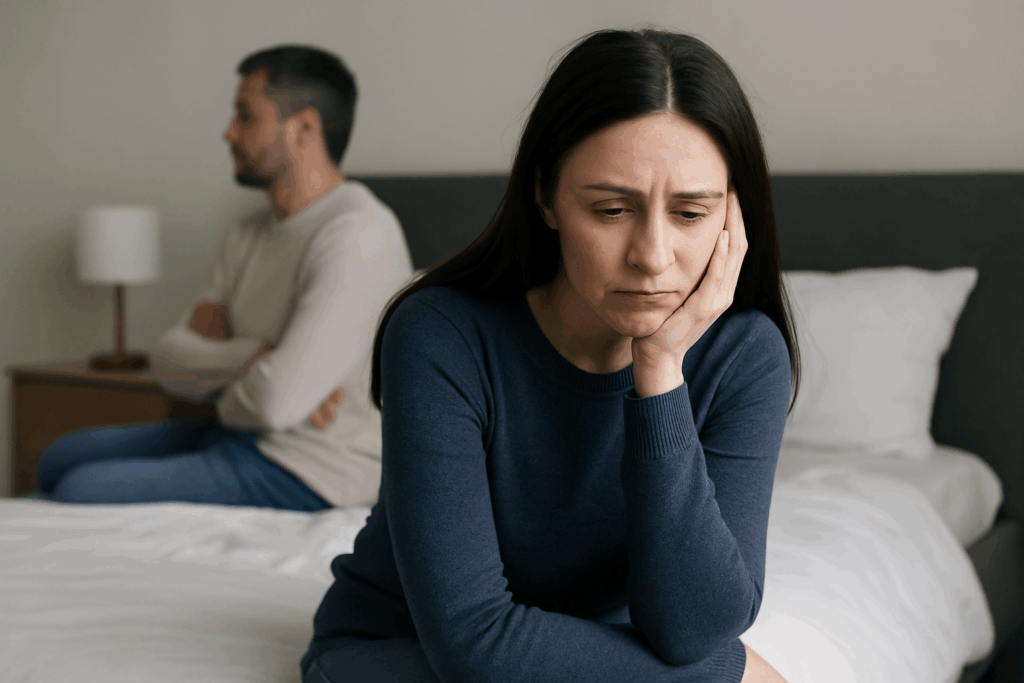Marriage is supposed to be a union filled with love, companionship, and mutual support. But what if you’re in a marriage where you feel alone, isolated, and unloved? If you’re feeling sad and lonely in your marriage, you’re not alone. Many individuals experience moments of loneliness and sadness in their relationships, which can lead to feelings of depression and confusion. If you find yourself asking, “Why am I so lonely in my marriage?” or “What to do if you’re married but lonely,” this blog will explore your feelings and provide guidance to help you navigate this challenging situation.
Understanding Loneliness in Marriage
Marriage is often portrayed as a partnership where two people share their lives and support one another. However, it’s important to recognize that feeling lonely in a marriage is not necessarily a sign of a failing relationship. You could be physically married but still feel emotionally disconnected, which can lead to a sense of isolation.
If you say, “I feel sad and lonely in my marriage” or “I am so depressed and lonely in my marriage,” it’s a reflection of unmet emotional needs. Loneliness in marriage can occur for many reasons, including poor communication, emotional neglect, or the gradual loss of intimacy over time. It’s important to note that loneliness in marriage doesn’t always indicate a lack of love. Sometimes, it simply means that the emotional connection has weakened, leaving one or both partners feeling unfulfilled.
Why Do You Feel Lonely and Depressed in Your Marriage?
Feeling lonely and depressed in marriage can stem from several underlying factors. Some common reasons include:
-
Emotional Disconnection: Over time, couples may stop sharing their feelings and thoughts with each other. This emotional distance can create a void, leaving one partner feeling sad and lonely in their marriage.
-
Lack of Communication: Communication is key to any successful relationship. When partners stop talking about their day, their feelings, and their needs, the relationship can feel distant. If you’re not having meaningful conversations, it’s easy to feel isolated.
-
Unmet Needs: If your emotional, physical, or psychological needs aren’t being met, you may start feeling lonely and disconnected. In some cases, one partner may not even be aware of the other’s needs.
-
Routine and Monotony: When the excitement and novelty of a relationship wear off, it can lead to feelings of monotony and boredom. This often happens in long-term marriages where both partners fall into a predictable routine. If you’re feeling “stuck in an unhappy marriage,” it’s likely because you’re no longer engaging with each other in ways that foster closeness.
-
External Stressors: Work, family pressures, and financial problems can place a significant strain on a marriage. These external factors can create stress, making it harder to maintain a close, connected relationship. When you’re feeling stressed, it’s difficult to feel emotionally connected to your partner.
-
Unresolved Conflicts: If you’re unable to resolve ongoing conflicts in your marriage, resentment can build up. This can lead to feelings of sadness, loneliness, and depression. If there are issues you’ve swept under the rug, they can erode the foundation of your relationship.
How Loneliness Can Affect Your Mental Health
Feeling lonely in your marriage can have a significant impact on your mental and emotional health. The feelings of sadness and isolation can lead to depression, anxiety, and even physical health issues. Chronic loneliness is linked to a weakened immune system, higher blood pressure, and a reduced lifespan. It can also affect your self-esteem and make you question your worth in the relationship.
If you’re feeling lonely and depressed in your marriage, it’s important to address these feelings as soon as possible. Ignoring them can lead to greater emotional and physical strain. You may even begin to withdraw from other relationships and activities, further isolating yourself.
What to Do If You’re Married but Lonely
If you’re asking, “What to do if you’re married but lonely,” there are steps you can take to address the situation and improve your emotional well-being. Here are some helpful strategies:
-
Communicate Openly with Your Partner The first step in resolving feelings of loneliness in marriage is to talk openly with your partner. If you’re feeling sad and lonely, it’s important to express how you feel without blaming your partner. Use “I” statements, such as “I feel sad and lonely when we don’t spend time together” or “I feel disconnected from you.” This approach prevents the conversation from turning into a confrontation and encourages your partner to listen without feeling attacked.
-
Reconnect Emotionally Rebuilding emotional intimacy is essential in overcoming loneliness in a marriage. Take time to get to know each other again. Share your dreams, fears, and goals. Do things together that allow you to bond, such as taking walks, watching movies, or engaging in hobbies. It’s important to prioritize quality time with your partner to reignite the emotional connection.
-
Seek Professional Help If you’re feeling stuck in an unhappy marriage and don’t know how to move forward, consider seeking professional help. A marriage counselor or therapist can provide valuable insights and strategies for improving your relationship. Therapy offers a safe space for both partners to express their feelings and work through unresolved issues. If you’re feeling lonely and depressed in marriage, therapy can help you better understand the root causes of your emotions and provide practical solutions.
-
Focus on Self-Care It’s easy to lose yourself in the demands of marriage and life. If you’re feeling sad and lonely in your marriage, take time to nurture yourself. Engage in activities that bring you joy, whether it’s reading, exercising, or spending time with friends. Taking care of your own mental and physical health will make you more resilient and better equipped to handle the challenges in your marriage.
-
Set Realistic Expectations No marriage is perfect, and it’s important to set realistic expectations for your relationship. It’s normal to experience ups and downs, and feeling lonely or sad at times doesn’t mean your marriage is doomed. Be patient with yourself and your partner as you work through these difficult feelings. With effort and understanding, it’s possible to strengthen your relationship and overcome the loneliness you’re experiencing.
-
Rekindle Physical Intimacy Physical intimacy plays a significant role in the emotional bond between partners. If you’re feeling lonely in your marriage, intimacy may have waned. Reconnecting physically can help restore closeness and affection. This doesn’t always mean sexual intimacy but can include cuddling, holding hands, or sharing affectionate gestures.
-
Consider Relationship Coaching Sometimes, seeking the guidance of a relationship coach can help you develop a deeper understanding of your relationship dynamics. Coaches can provide actionable advice and support tailored to your unique situation. If you’re feeling lonely and depressed in your marriage, a coach may help you set achievable goals for improving your connection with your partner.
When to Seek Outside Help
In some cases, feeling lonely and depressed in marriage can be a sign of deeper issues, such as emotional neglect or abuse. If you’re feeling consistently sad, lonely, and unfulfilled, and efforts to improve the relationship haven’t worked, it may be time to reassess the marriage. You might ask, “What if I feel lonely in my marriage despite trying everything?” In such situations, seeking professional guidance from a therapist or counselor is essential.
If the loneliness is accompanied by feelings of fear, control, or manipulation, or if your partner is unwilling to work on the relationship, it may be necessary to explore options for your emotional safety and well-being.
Moving Forward: Taking Action for a Healthier Marriage
If you’re feeling “so sad and lonely in my marriage” and unsure how to proceed, it’s important to remember that change is possible. The first step is acknowledging your feelings and taking action. You don’t have to face this challenge alone—reach out to professionals, communicate with your partner, and take steps to prioritize your emotional health.
Every marriage has its ups and downs, but loneliness and sadness don’t have to define your relationship. With effort, open communication, and professional support, it’s possible to break free from feeling lonely and create a stronger, more connected bond with your partner.






